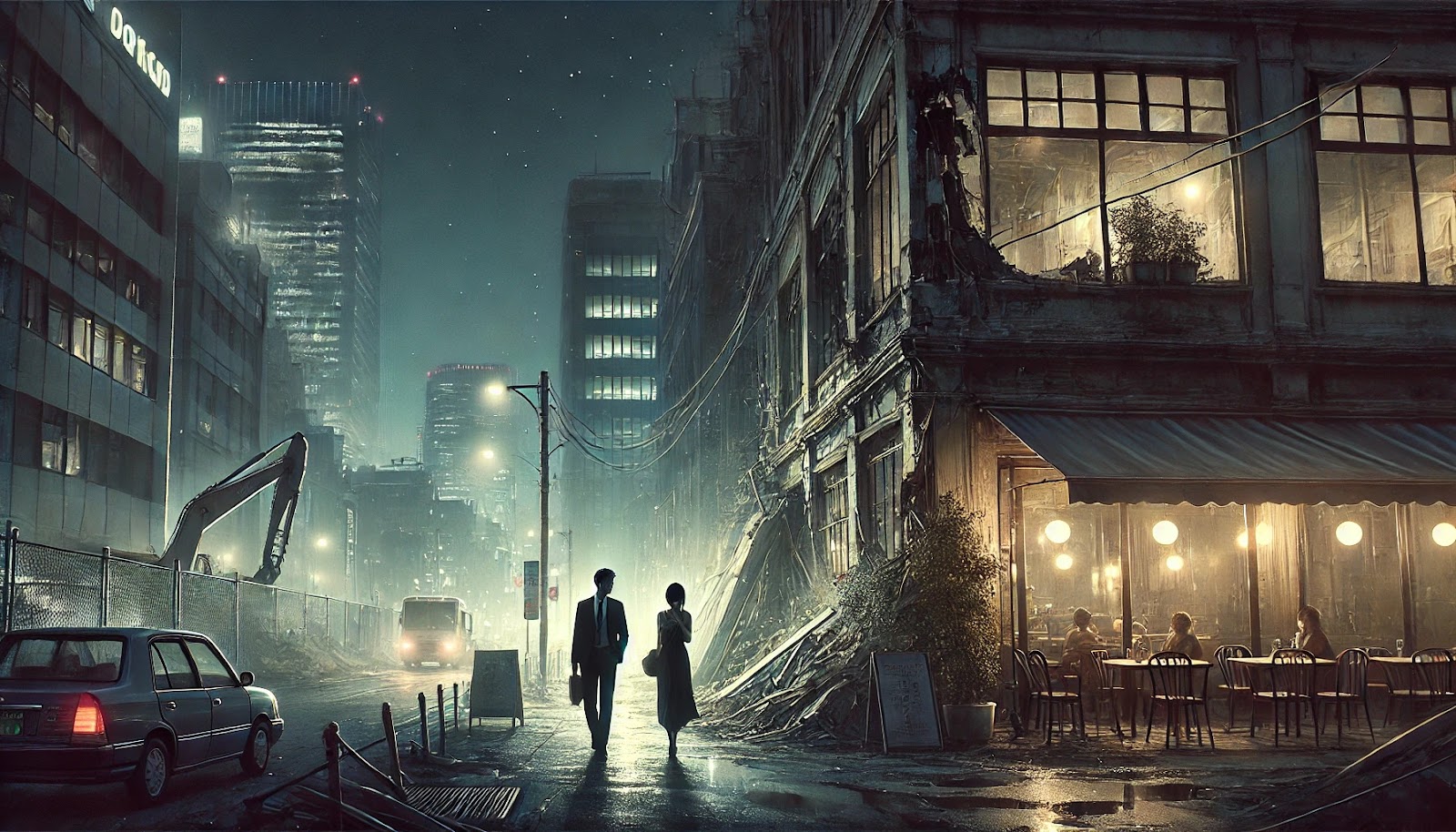Underneath the gray Tokyo sky, the city hummed with an almost inaudible vibration, a low and constant frequency that seemed to pulse from the concrete and steel. It was a place where development danced a subtle, intricate ballet with destruction.
Toru Watanabe wandered the streets, his thoughts adrift in a sea of introspection. He watched as a building, once teeming with life and stories, crumbled under the force of a wrecking ball. Dust and debris filled the air, a tangible reminder that creation and annihilation were often two sides of the same coin.
In the dim light of a jazz bar, where the scent of whiskey and the soft notes of a saxophone intertwined, Toru met an old friend, Naoko. She spoke of progress, of new beginnings, but her eyes betrayed a certain melancholy. "Isn't it strange," she mused, "how every new beginning necessitates an ending? We build something new, but only after tearing down what once was."
Toru nodded, feeling the weight of her words. He remembered the quiet bookstore he used to visit, now replaced by a sleek, modern café. The books that had lined the shelves, filled with the whispers of countless voices, were gone. In their place, shiny tablets and polished surfaces reflected the faces of strangers.
"It's like a dream," Toru said, swirling the amber liquid in his glass. "In our dreams, things are constantly shifting, changing. One moment we are here, the next, somewhere entirely different. Development is much the same. We move forward, but always leave something behind."
As the night deepened, Toru and Naoko stepped out into the cool air. The city lights flickered like distant stars, and the hum of progress thrummed in the background. They walked in silence, contemplating the fragile balance between creation and destruction, understanding that each step forward was a step away from something familiar.
In the end, Toru thought, perhaps development is neither good nor bad. It is simply a process, a continuous cycle of birth and death, where the old makes way for the new, and the new eventually becomes old. And in that perpetual motion, life carries on, ever-changing, ever-evolving.

Comments
Post a Comment